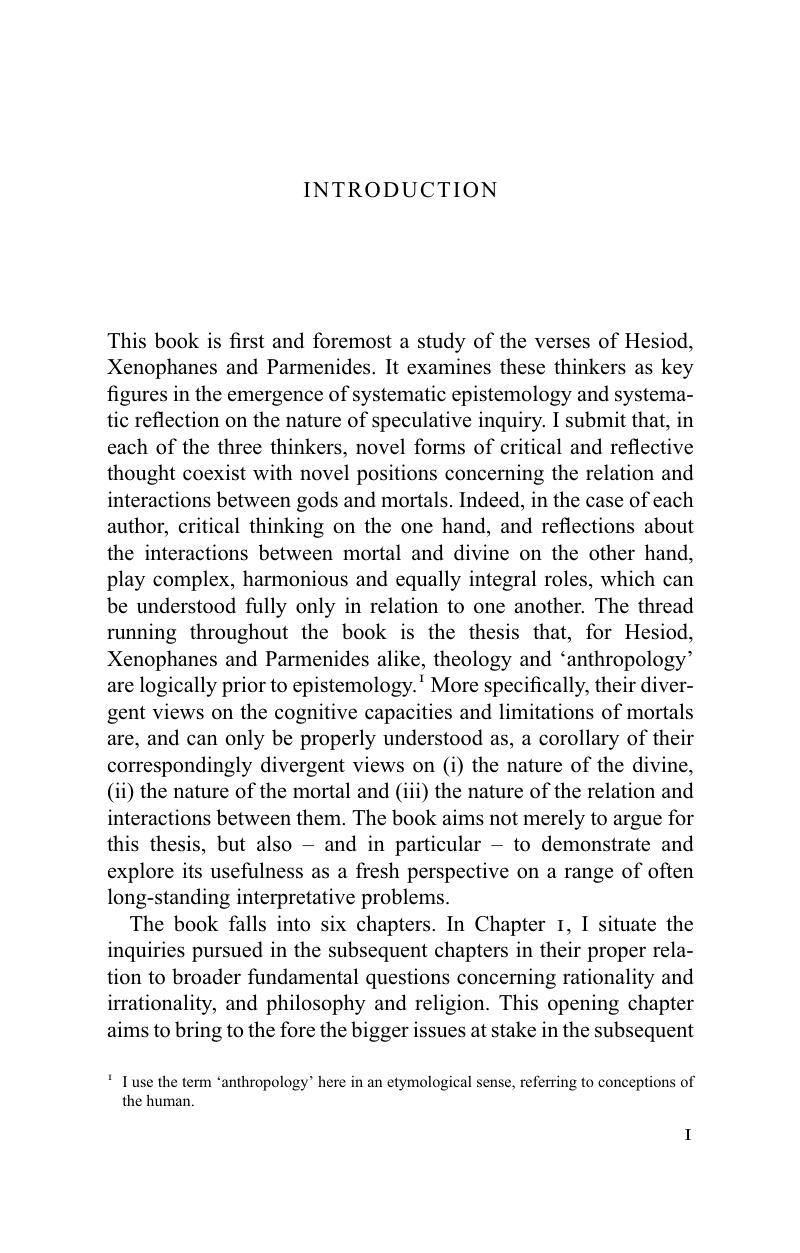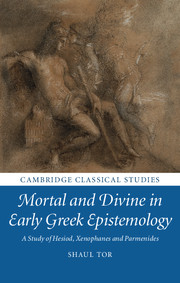Book contents
- Mortal and Divine in Early Greek Epistemology
- Cambridge Classical Studies
- Mortal and Divine in Early Greek Epistemology
- Copyright page
- Dedication
- Contents
- Preface and Acknowledgements
- Abbreviations
- Introduction
- 1 Rationality and Irrationality, Philosophy and Religion
- 2 Hesiodic Epistemology
- 3 Xenophanes on Divine Disclosure and Mortal Inquiry
- Introduction to the Chapters on Parmenides
- 4 Why Did Parmenides Write Doxa?
- 5 How Could Parmenides Have Written Alêtheia?
- 6 Retrospect and Prospect
- Appendix The Trajectory of the kouros’ Journey and Eschatological Topography in Parmenides: Some Inconclusive Remarks
- Bibliography
- Index Locorum
- General Index
Introduction
Published online by Cambridge University Press: 30 September 2017
- Mortal and Divine in Early Greek Epistemology
- Cambridge Classical Studies
- Mortal and Divine in Early Greek Epistemology
- Copyright page
- Dedication
- Contents
- Preface and Acknowledgements
- Abbreviations
- Introduction
- 1 Rationality and Irrationality, Philosophy and Religion
- 2 Hesiodic Epistemology
- 3 Xenophanes on Divine Disclosure and Mortal Inquiry
- Introduction to the Chapters on Parmenides
- 4 Why Did Parmenides Write Doxa?
- 5 How Could Parmenides Have Written Alêtheia?
- 6 Retrospect and Prospect
- Appendix The Trajectory of the kouros’ Journey and Eschatological Topography in Parmenides: Some Inconclusive Remarks
- Bibliography
- Index Locorum
- General Index
Summary

- Type
- Chapter
- Information
- Mortal and Divine in Early Greek EpistemologyA Study of Hesiod, Xenophanes and Parmenides, pp. 1 - 9Publisher: Cambridge University PressPrint publication year: 2017

